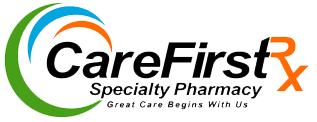How is pharmaceutical compounding different from drug manufacturing?
How is pharmaceutical compounding different from drug manufacturing?
Compounding is a pharmaceutical practice that can tailor a medication to the specific needs of an individual. These needs have been identified by the individual's health care provider and are in some way incongruent with the options available through traditional drug manufacturing. Let's look at what compounding involves and how you can ensure you're getting safe, reliable compounding services.
Is A Compound Medication The Same As A Manufactured Medication?
No. In fact, one of the caveats of compounding is that the final product not be an exact replica of any commercially manufactured drug product.
Manufacturers take a specific set of ingredients to come up with a specific drug for mass marketing. The drug undergoes trials and testing before it's deemed safe for use by the FDA and becomes available to be dispensed and sold by pharmacies and health care providers.
Think of it like the ice cream section at the grocer. Many flavors (drugs) are available by many different brands (manufacturers,) but you have to take what's on the shelf as-is. You can't open the Rocky Road, remove the almonds, and then add a couple scoops of Chocolate Mint.
Compounding is like the ice cream parlor that you can choose from basic ice creams, mix flavors together, add or remove toppings, and then choose how it's served - cone, waffle, bowl, milk shake etc. Customization.
In technical terms, pharmaceutical compounding is the custom preparation of a medication to meet a prescriber's exact specifications to meet a patient's unique medical needs.
Why Would Someone Need A Compound Medication?
There are many instances where a commercially available drug fails to meet a patient's needs:
- A patient may be allergic or unable to tolerate the only commercial drug options to treat their ailment and need the drug to be reformulated to exclude the dye, lactose, gluten, or other additive causing them issue.
- A patient may require a drug that's unavailable, been recalled for manufacturing errors, is in shortage, or has been discontinued.
- A patient may require a customized dosage or strength.
- Flavoring may be needed to make the drug palatable.
- The delivery method of the drug may need to be changed to accommodate a patient's needs or safety. For example, a transdermal delivery may be needed if the patient has difficulty swallowing liquids and pills offered by the manufacturer.
Compounding allows pharmacists to take the ingredients and assemble, prepare, mix, alter, and/or repackage them to accommodate such scenarios when a physician deems it necessary.
Do All Pharmacies Offer Compounding Services?
All licensed pharmacists have had basic compounding practices within their education. Most retail pharmacies offer some degree of compounding. For example, many local pharmacies will add a flavoring to an unpalatable manufacturer's drug. Hospitals frequently utilize compounding services within their internal pharmacy to accommodate various departments from physical therapy to med-surg.
That said, most advanced compounding services for the general public are done by specialized compounding pharmacies that have invested in the equipment, facilities, quality control, and highly-trained personnel to ensure safe and efficient delivery. Some of these pharmacies are accredited by certain by certain accreditation agencies to further distinguish pharmacies providing compounding services.
How To Choose A Compounding Pharmacy
It's important to choose a US-based compounder who's licensed in your state. You also want to carefully select a compound pharmacy that is accredited for adhering to the highest quality standards and compounding practices. An accreditation, like PCAB, Pharmacy Compounding Accreditation Board provides a process to review a compounding pharmacy’s ability to meet strict regulatory requirements and standards set by accreditation organization. It demonstrates the pharmacy’s commitment to quality by meeting/or exceeding strict industry standards.
Compounding is regulated by the state board of pharmacy in the compounder's state. They're also subject to federal oversight by the FDA for the integrity and safety of the active pharmaceutical ingredients, or APIs. The DEA takes oversight of all controlled substances in compound medications.
For consumers, the most important qualifications to look for in a compounder are the accreditations. The practice and chemical purity standards of compounding have been set by the United States Pharmacopeial (USP) Convention, a private, nonprofit organization. These standards must be adhered to for a compounded to receive Pharmacy Compounding Accreditation from the Accreditation Council for Health Care, or ACHC.
The NABP, or National Association of Boards of Pharmacy is a private entity devoted to public health safety. They've developed a verification process to identify safe, legal, and ethical online pharmacies. Websites, such as https://www.safe.pharmacy/buying-safely/, can be utilized to find a complete listing of NABP verified websites.

Comments